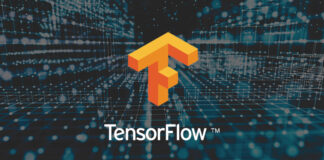Tag: AI
MCubed Online: Join us for one day of practical tips for real-world machine learning
There’s one thing that hasn’t been disrupted over recent months. Machine learning and AI continue to push their […]
Busy week for Google Cloud: TPUs spark PyTorch support and AI Platform gets Predictions going
Google Cloud’s AI Platform has opened the doors to a new Prediction product – AI Platform Prediction is […]
‘You still have quite a bit of control coming from operations’: CloudBees CEO about DevSecOps and a pinch of AI in its future
CI/CD tooling provider CloudBees has kicked off its yearly user extravaganza, DevOps World, by priming users for what’s […]
Snyk buys DeepCode to inject AI into DevSecOps mix
Open source security platform provider Snyk has announced the acquisition of AI-powered code analysis company DeepCode. Financial details […]
JupyterLab extension Elyra toasts first major release with code snippet helper
Elyra, a set of extensions for JupyterLab Notebooks, has reached its first major release – just three months […]
CUDA, woulda … did: Nvidia makes CUDA 11 generally available, mostly pushing its next-gen architecture
Developers who were excited by Nvidia’s May announcement of an upcoming CUDA release can finally hop over to […]
Databricks hands MLflow to Linux Foundation, speeds up Delta Lake, and pushes pandas on Spark forward
Data science conference Spark+AI Summit is still in full swing. Organised by Spark experts Databricks, it naturally lent […]
Can’t see the forest for the trees? Alibi Explain adds more models for better machine learning understanding
Machine learning teams in search of model explanations can now give the newly released Alibi Explain 0.5 a […]
Open source AI collab project ONNX turns 1.7, takes first steps towards multi-framework training
Open machine learning model representation ONNX has hit version 1.7, previewing training support, and including additional operators as […]
TensorFlow 2.2 kicks Python 2 to the curb, adds new profiler and tf.distribute improvements
Machine learning platform TensorFlow has added a new profiler to its project and looked into ways of improving […]









